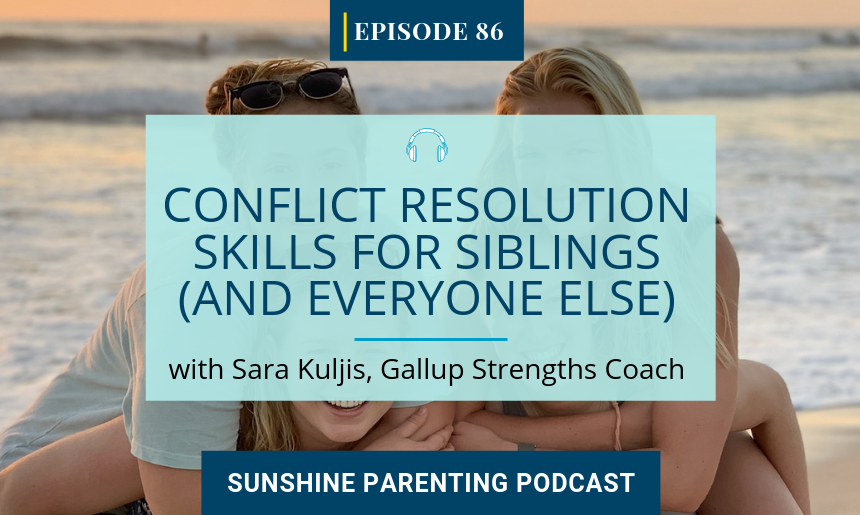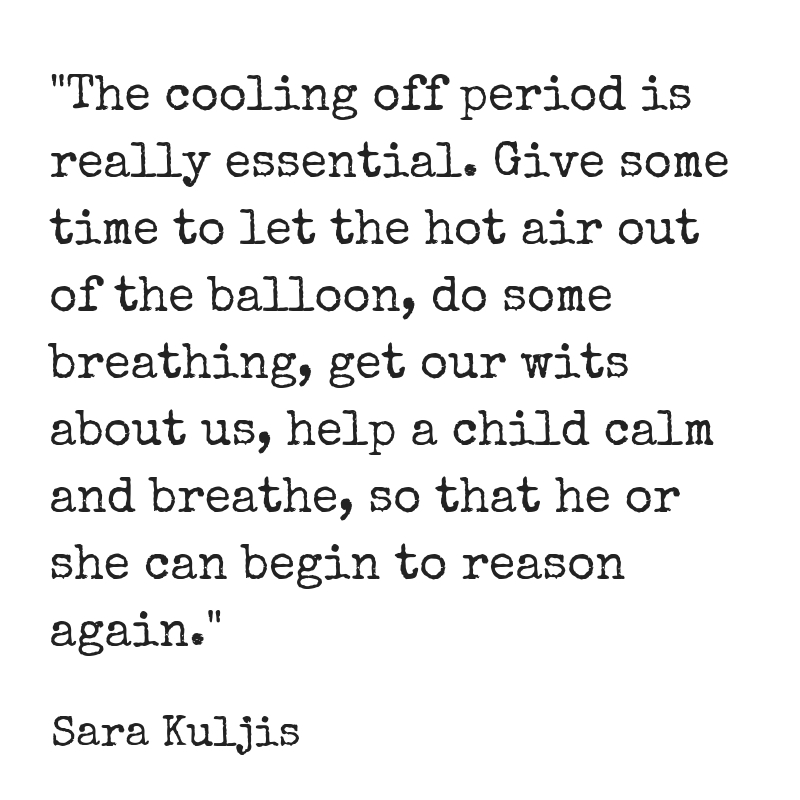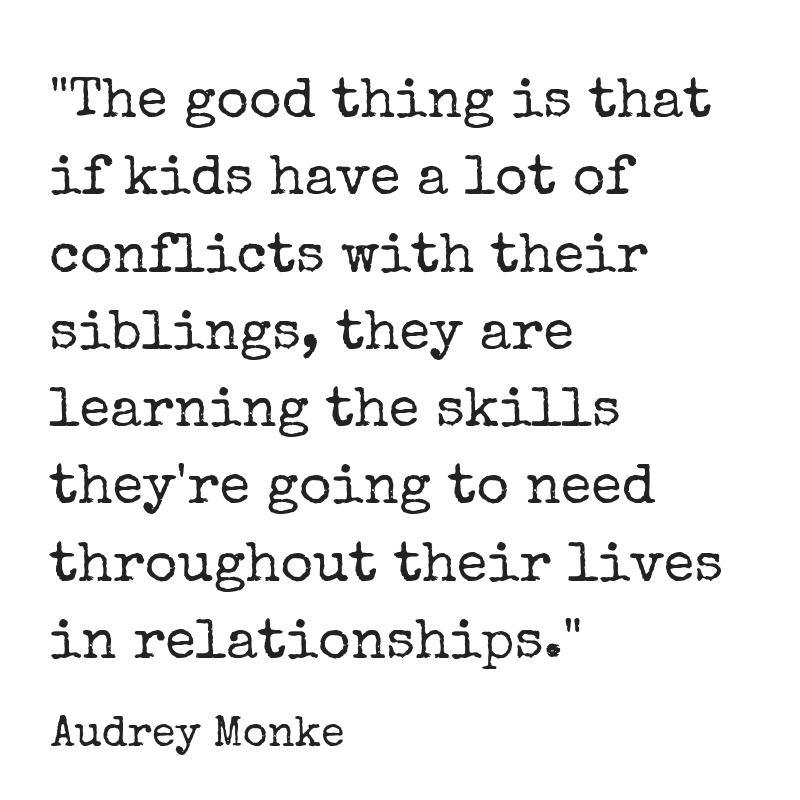
In today’s podcast, Episode 86, I continue my conversation with my friend Sara Kuljis about sibling rivalry. We talk about the 5 steps to conflict resolution and the essential skills that our kids need for positive and healthy relationships with their siblings.
BIG IDEAS
- It seems that kids have their first conflicts with siblings, so it’s a great place for them to start learning how to resolve conflicts.
- It’s very common for families to have sibling conflict issues.
- It’s very hard for children or adults to reason when very strong emotions are present.
- It’s important to have a cooling off period before starting to resolve any conflict.
- Show kids that there are many ways to self-regulate and help them to figure out their best coping mechanism.
- It is vital to listen very carefully.
- It’s important for parents to validate kids’ feelings, even when they don’t agree with what they’re feeling.
- Parents can help their kids to identify and articulate what the real issue is.
- It is much wiser to let those who are in the conflict come up with their own solutions, rather than to impose our solutions on them.
QUOTES
Audrey: “I don’t think I know a family that doesn’t have some sibling conflict issue. Often times conflicts don’t get wrapped up in a bow and perfectly resolved. They’re ongoing.”
Sara: “Very often when conflict arises, there’s a lot of emotion tied to it.”

Audrey: “Even adults sometimes have trouble with recognizing when we need a cool-down period before we even respond to our child or their behavior.”
Sara: “Time-outs aren’t the punishment for bad behavior. Time-out is a time to cool down, catch their breath, name their feelings, get the tears out, and quiet their voice so that they don’t say something they might regret.”
Audrey: “I like that concept of really normalizing the idea that there often needs to be a cooling off, calming down period in life.”
Audrey: “Low blood sugar or being really tired can often put us where we are much less patient with each other, and our emotions are right near the surface. Anything that you try to resolve when one or both parties are upset, you don’t get very far.”
Audrey: “Ask kids to tell their side of the story and validate their feelings. They will then start practicing that skill of sharing their story and listening to other people’s.”
Sara: “What we would often do at camp and what I would do with my kids, is really parrot back- ‘what I hear you say is…’. And let them clarify if you got it wrong. It also helps the child to put words around their experiences which is a really important life-skill.”
Audrey: “Validating, regardless of if you think their complaint, their issue, whatever it is, might seem trivial to you, might not seem worth being upset about, is really important.”
Audrey: “Sometimes we want to defend ourselves, but really, we should just be validating our kids. Even when we don’t agree with them.”
Audrey: “Ask, ‘How can we, together, work out a way to solve the issue of our differences?’ and remember it is not about the person. It’s about working together to solve the issue.”
Sara: “The next step would be the problem-solving. One of the important things I learned through all my years of parenting and camp directing, and all the other experiences I’ve had, is it’s much less effective if we impose our solution on those who are in the conflict. How much wiser it is to take the time to let those in conflict come up with the solution, inviting kids into the problem-solving arena with you.” 
Audrey: “We have so much to talk about with the whole topic of forgiveness and apology because I think these are life-long cycles with siblings.”
Audrey: “You can forgive someone and you can accept their apology, but you can also have some boundaries of not allowing the behavior to be repeated.”
EXAMPLES OF ISSUES BETWEEN SIBLINGS
- arguing over belongings
- needing space
- needing attention
- words/name calling
- mean behavior
- being bossy
- tattling
- taking turns
- comparing/jealousy
- not sharing
LINKS
Tina Payne Bryson and Daniel Siegel’s The Yes Brain
RELATED POSTS/PODCASTS
More information about Audrey’s new book is here: Happy Campers: 9 Summer Camp Secrets for Raising Kids Who Become Thriving Adults.
In Happy Campers, Audrey shares what she’s learned from three decades of creating a culture where kids become happier while gaining important social and emotional skills. The book is based on her thousands of interactions with campers, camp counselors, and parents, her academic research in positive psychology, and interviews with camp directors from across the country.
